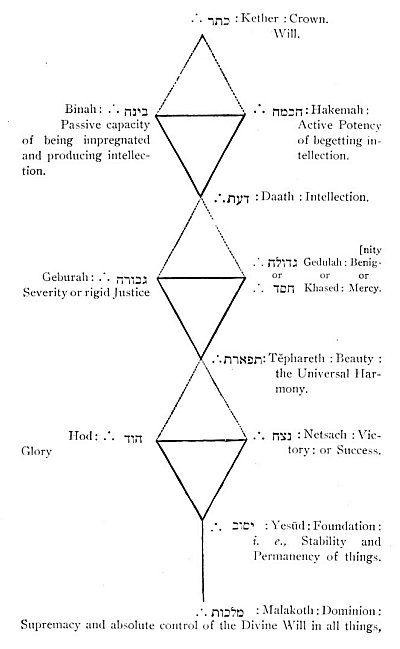The simpler, and probably the older, notion, treated the one only God as the Author of all things. “I form the light,” says Jehovah, “and create darkness; I cause prosperity and create evil; I, the Lord, do all these things.” “All mankind,” says Maximus Tyrius, “are agreed that there exists one only Universal King and Father, and that the many gods are His Children.” There is nothing improbable in the supposition that the primitive idea was that there was but one God. A vague sense of Nature’s Unity, blended with a dim perception of an all-pervading Spiritual Essence, has been remarked among the earliest manifestations of the Human Mind. Everywhere it was the dim remembrance, uncertain and indefinite, of the original truth taught by God to the first men.
The Deity of the Old Testament is everywhere represented as the direct author of Evil, commissioning evil and lying spirits to men, hardening the heart of Pharaoh, and visiting the iniquity of the individual sinner on the whole people. The rude conception of sternness predominating over mercy in the Deity, can alone account for the human sacrifices, purposed, if not executed, by Abraham and Jephthah. It has not been uncommon, in any age or country of the world, for men to recognize the existence of one God, without forming any becoming estimate of His dignity. The
p. 688
causes of both good and ill are referred to a mysterious centre, to which each assigns such attributes as correspond with his own intellect and advance in civilization. Hence the assignment to the Deity of the feelings of envy and jealousy. Hence the provocation given by the healing skill of Æsculapius and the humane theft of fire by Prometheus. The very spirit of Nature, personified in Orpheus, Tantalus, or Phineus was supposed to have been killed, confined, or blinded, for having too freely divulged the Divine Mysteries to mankind. This Divine Envy still exists in a modified form, and varies according to circumstances. In Hesiod it appears in the lowest type of human malignity. In the God of Moses, it is jealousy of the infringement of the autocratic power, the check to political treason; and even the penalties denounced for worshipping other gods often seem dictated rather by a jealous regard for His own greatness in Deity, than by the immorality and degraded nature of the worship itself. In Herodotus and other writers it assumes a more philosophical shape, as a strict adherence to a moral equilibrium in the government of the world, in the punishment of pride, arrogance, and insolent pretension.
God acts providentially in Nature by regular and universal laws, by constant modes of operation; and so takes care of material things without violating their constitution, acting always according to the nature of the things which He has made. It is a fact of observation that, in the material and unconscious world, He works by its materiality and unconsciousness, not against them; in the animal world, by its animality and partial consciousness, not against them. So in the providential government of the world, He acts by regular and universal laws, and constant modes of operation; and so takes care of human things without violating their constitution, acting always according to the human nature of man, not against if, working in the human world by means of man’s consciousness and partial freedom, not against them.
God acts by general laws for general purposes. The attraction of gravitation is a good thing, for it keeps the world together; and if the tower of Siloam, thereby falling to the ground, slays eighteen men of Jerusalem, that number is too small to think of, considering the myriad millions who are upheld by the same law. It could not well be repealed for their sake, and to hold up that tower; nor could it remain in force, and the tower stand.
It is difficult to conceive of a Perfect Will without confounding
p. 689
it with something like mechanism; since language has no name for that combination of the Inexorable with the Moral, which the old poets personified separately in Ananke or Eimarmene and Zeus. How combine understandingly the Perfect Freedom of the Supreme and All-Sovereign Will of God with the inflexible necessity, as part of His Essence, that He should and must continue to be, in all His great attributes, of justice and mercy for example, what He is now and always has been, and with the impossibility of His changing His nature and becoming unjust, merciless, cruel, fickle, or of His repealing the great moral laws which make crime wrong and the practice of virtue right?

Moe is the founder of GnosticWarrior.com. He is a father, husband, author, martial arts black belt, and an expert in Gnosticism, the occult, and esotericism.





